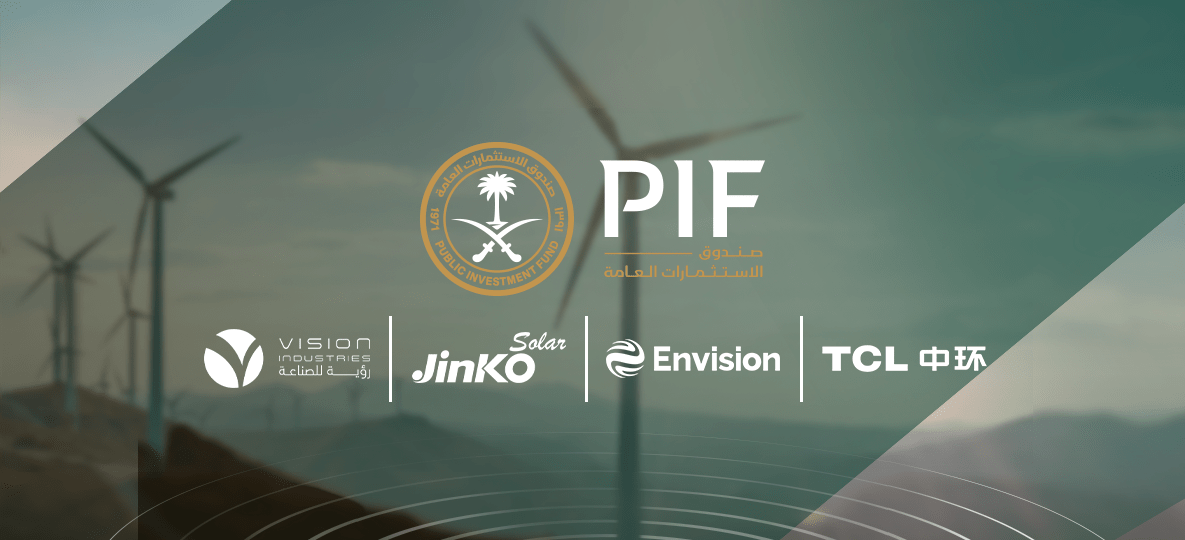- Policies, initiatives, and companies embrace environmental, social, and governance principles
- Riyad Bank and Saudi Electricity Company, part of the PIF portfolio, are among the organizations promoting ESG awareness
- Sustainability is at the core of the Vision 2030 roadmap and 2060 net zero emissions target
Following an environmental, social, and governance (ESG) approach is viewed globally as a key way to safeguard businesses against future risks. A company that follows ESG principles is better able to expand in existing markets, enter new territories, operate more effectively and sustainably, and attract talent.
Organizations in Saudi Arabia are embracing ESG principles and taking them a step further, as the country advances toward economic diversification. Saudi Arabia’s far-reaching goals include a net zero emissions target by 2060, while ESG principles are embedded in its journey to meet the ambitions of Vision 2030, the nation’s strategic roadmap that covers everything from policy development and investment to planning and infrastructure.
A key initiative is the Saudi Green Initiative, established under the patronage of His Royal Highness Crown Prince Mohammed bin Salman bin Abdulaziz, Prime Minister and Chairman of the Council of Economic and Development Affairs (CEDA), and Chairman of PIF. That includes a first wave of over 60 programs and projects, representing a total investment of more than SAR 700 billion ($187 billion) to boost the green economy, and is helping to position the country as an international leader in sustainability.
This ESG-led focus aims to create a better tomorrow in Saudi Arabia and beyond. The Future Investment Initiative (FII) Institute, a non-profit foundation headquartered in Riyadh, this year launched an “Inclusive ESG Framework and Scoring Methodology”, a call-to-action for ESG to be more inclusive and applicable to the emerging markets.
“It’s really important that we take the lead when it comes to ESG, to make sure to manage it well so that we will attract more investment,” Saad Alshahrani, Deputy Minister for Economic Affairs and Investment Studies at the Ministry of Investment, told PIF Global Insights.
“We have Tadawul [the Saudi Stock Exchange], which has its own ESG disclosure guidelines… and we have the Green Riyadh [urban forestation] initiative. We are working together as a government… to make sure we’re achieving the right ESG approach.”
PIF, an impactful investor with a crucial role in realizing Vision 2030 – and the founding partner of the FII Institute – is delivering on the country’s goals by embracing ESG principles, as it invests locally and internationally to promote long-term sustainability.
Many of Saudi Arabia’s businesses have already adopted impactful ESG frameworks, including the Saudi Electricity Company, in which PIF holds a majority stake. In line with international standards and principles, the Saudi Electricity Company published its Green Sukuk Framework in 2020, with the aim of contributing positively to the country’s commitment to the United Nations Framework Convention on Climate Change, as well as its own sustainable development objectives contained in Vision 2030.
“Any company that scores very highly in ESG should be able to perform better than its peers that are not focusing on ESG, over a long period of time,” said Manish Manchandya, Saudi Electricity Company’s Chief Financial Officer and Executive Vice President.
Riyad Bank has implemented a Sustainable Finance Framework in line with the International Capital Market Association’s green, social and sustainability principles that cover a diverse range of eligible sustainable activities.
Tareq Al-Sadhan, President and CEO at Riyad Bank, recognizes the significance of implementing an ESG-focused framework to educate and reassure investors and staff alike. “We are responsible for spreading the awareness of ESG by measuring our consumption, whether it’s electricity or water; we also count paper and plastic consumption – and award divisions who perform best in reducing their waste,” he said.
“We are also responsible for encouraging the private sector to consider ESG as part of their strategy. In 2021, we introduced our ESG financing (or green financing) that includes nine products. Sustainability should be a priority all the time.”
With the private sector working closely with the government in implementing strong ESG principles into everything, from meaningful frameworks that benefit sustainable businesses to nationwide policies that support vibrant, thriving communities, Saudi Arabia is positioning itself at the vanguard of ESG action.
“We’re not talking about financial gains – it’s… beyond that,” said Alshahrani. “We’re talking about sustainability, future generations, and [creating] a sustainable economy that will rely on the best environment and best quality of life. At the same time, we’re looking at the governance and the laws that will enable the government to continue [its sustainable approach] for decades [to come].”





